Chapter 2
* * *
Ophelia Windrose died in late spring as summer approached.
The beginning of the end was the night she insisted on opening the window to admire the spring blossoms outside. While the chill she caught that evening initially seemed like a minor cold, it progressively worsened and became a burning fever. Despite numerous attempts to cure her, the fever persisted, frequently robbing her of consciousness. Following a month-long struggle, she succumbed to her illness.
Her funeral was modest. Draped in mourning attire, I observed silently throughout the proceedings. Ophelia’s mother, the marchioness, clung to her casket and sobbed uncontrollably until she finally collapsed and had to be carried away.
I shed no tears. The whispering maids labeled me as heartless for my stoicism, and the other funeral guests in attendance each glanced over at me at least once.
Among the solemnly dressed guests offering condolences to the marquess, there were hardly any who knew Ophelia personally. This was not true of everyone, though. A handful of men stood apart from everyone else, tucked away in a corner and wearing stern expressions. I deliberately avoided looking in their direction throughout the funeral.
Ophelia Windrose was the marquess’s only daughter. The marquess and marchioness, serving their own selfish ambitions, had invited scores of nobles to the Windrose Estate for her funeral. Among them were the men who had come to love Ophelia despite her unfailingly prickly and unfriendly nature. These were the game’s male protagonists, the roster of characters from which the player could choose to woo.
Their jealousy and disdain for me was inevitable. Ophelia was standoffish toward everyone, showing her softer side only in my presence. No matter how many desirable men sought her favor, she dismissed them all. She was disgusted by them for being attracted to the tragic beauty of a woman destined to die.
In fact, Ophelia held everyone in disdain, including her own parents. I was the sole exception, something all others resented. Perhaps they felt humiliated that she preferred someone like me, lacking in notable beauty, education, and lineage.
But now it was all over. Instead of the traditional white lilies, I placed a bouquet of bright red roses, purple irises, and light pink blossoms resembling clusters of soft cotton upon her casket. The unconventional choice of flowers momentarily drew attention, but no objections were raised. Only the marchioness, having barely regained consciousness for the funeral, glanced at me with bloodshot eyes before looking away. Ophelia’s suitors seemed to stare more fixedly, but it mattered little to me.
As the priest concluded his prayers, the marchioness fainted once more. The marquess hurried his wife inside, draping her over his shoulder. The priest, now finished with the prayers, cleared his throat and stepped aside. The ceremony was essentially finished.
The guests mingled and slowly made their way inside the Windrose manor. The servants, who had been fond of Ophelia, guided them in with somber expressions.
Left outside, I stood absentmindedly under a large tree and stared at her gravestone.
“Isn’t it all so meaningless?” a voice laced with sarcasm remarked.
I turned to find a man with long, neatly tied blue hair approaching me. Though one of his eyes was partially hidden behind a monocle, I could see his gaze was icy.
“There are some who care little whether they live or die. Yet the heavens choose to maliciously take the life of one who does care, and spare one who does not,” the man said, pointedly fixing his eyes on me.
“So it seems,” I replied indifferently.
His face twisted with frustration as he barked out a terse laugh. “Are you telling me you feel nothing, even now? She held you in such high esteem!”
“I assure you, Lord Edmund, I understand her feelings far better than you ever could.”
He looked utterly dejected, a mixture of defeat and despair in his eyes. His feelings were of little concern to me, however.
I tossed a withered lily to the ground. A gust of wind caught my black veil, causing it to flutter slightly. I caught a glimpse of the man’s blue eyes, sharply focused and almost distorted as if I was seeing them through cracked glass.
Edmund Gloucester, the eldest son of Count Gloucester, was a hyena. He was the kind of man who would stop at nothing to take anything he desired, making him a formidable foe if crossed.
In the game, most of the bad endings for the baron’s daughter involved Edmund in some way. Her imprisonment at his hands was a recurring theme. He would often lock her in a room filled to the ceiling with Ophelia’s belongings. That impulsive cruelty seemed to surface only in matters concerning Ophelia.
Throughout the many bad endings, the player learned hints about the troubled family history that possibly explained his erratic behavior. However, the details eluded me. I had no interest in his past or patience for someone so keen on tormenting me at every opportunity.
“Then whatever Lady Emilia’s opinion is on the matter, it must be correct,” a new voice chimed in from behind me.
My eyes were tinged with displeasure as I turned to face the newcomer. It was Cassio Brahmanduff. His blond hair was cropped short and neat, and he had cloudy gray eyes, narrow lips, and an arrogant smug smile. His tone carried a veneer of gentlemanly politeness, and at first encounter, his sweet voice and honey-colored hair lent him a deceptively charming air. In reality, he was the most despicable of men, often treating others as mere objects.
“You were the only one among us who truly understood her, Lady Emilia,” he continued.
This might have seemed like a supportive comment, but it was merely a veiled attempt at irritating the other man. Cassio didn’t like me any more than Lord Edmund did. His mocking gaze briefly met mine, but he quickly disregarded me.
“Indeed,” I agreed, using as few words as possible.
“We mustn’t dare presume Lady Emilia’s true feelings. To confront a lady so aggressively based only on your assumptions, Lord Edmund, seems both unseemly and disrespectful.”
Edmund’s face turned red. I could hear his teeth grinding. “Ha! Sir Cassio, are you actually defending her? The sun must have risen in the west.”
“Lady Emilia could very well be the future Lady Windrose, could she not?”
I laughed without meaning to. I was well aware that those who loved Ophelia had no reason to regard me with any kindness. Cassio’s insinuation was clear—he was suggesting the reason I did not grieve was because I intended to take Ophelia’s place.
I didn’t bother to conceal my amusement as I responded, “There’s no chance of that.”
The bickering between the two men abruptly stopped.
“I have no intentions of joining the Windrose family.”
The smirk on Cassio’s face disappeared and Edmund’s face took on a look of shock.
“What do you mean by that?” Lord Cassio asked.
“Haven’t you noticed?” I answered calmly. “There’s someone absent today.”
I was speaking of Laertes Hope. Had Ophelia been in good health, the marchioness would have likely chosen him as her daughter’s fiancé and her own future son-in-law.
Laertes was the Hope family’s second son, but his talents were exceptional and his character commendable. He was also a close relative of the Windroses. Alongside the two men squabbling before me, he was another who had great fondness for Ophelia.
Cassio’s face tensed. A rare crack formed in his typical composed and cunning demeanor.
“I’m sure the marchioness plans to adopt Lord Laertes. After all, he is a distinguished knight from a respectable lineage and an ideal heir for the marquess,” I continued.
“What are you suggesting?” Edmund interjected, his confusion evident on his deeply furrowed brow.
In stark contrast to the men’s usual sharpness, their quick wits seemed dulled this day. They often acted rather foolishly when it came to matters involving Ophelia. However, she was gone, and these men were destined to obsess over a poor woman from the country who resembled her. Perhaps the solemn funeral had exacerbated their irrationality more than usual.
I suppressed a sigh. As little fondness as I had for them, I would still feel their absences. I decided to temper my frustration and part with them civilly, as we would likely never cross paths again.
“I was brought to this estate because Ophelia needed a friend her age,” I said. “But now, she is gone.”
Their expressions seemed to question why I was stating the obvious.
“Therefore, it’s time for me to leave.”
For some reason, my words left the men utterly gobsmacked.
Why are they so astonished? I thought. Surely, they never saw me as anything more than a leech clinging to Ophelia’s side.



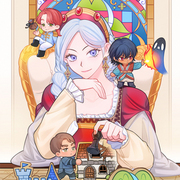
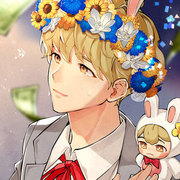
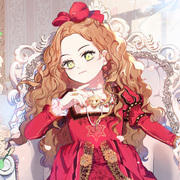
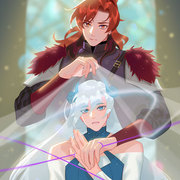
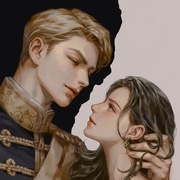
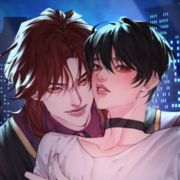

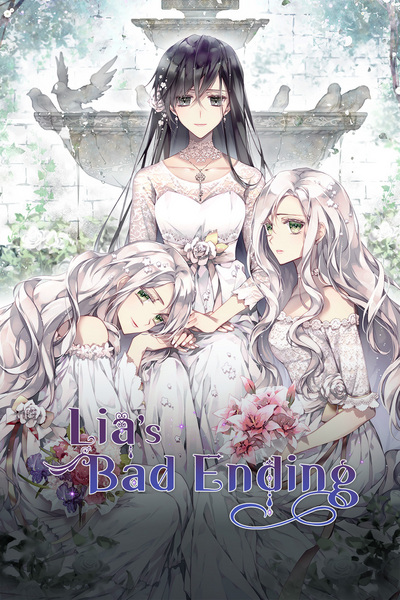
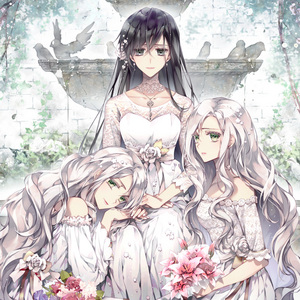
Comments (10)
See all